SUMMARY
This is AI generated summarization, which may have errors. For context, always refer to the full article.
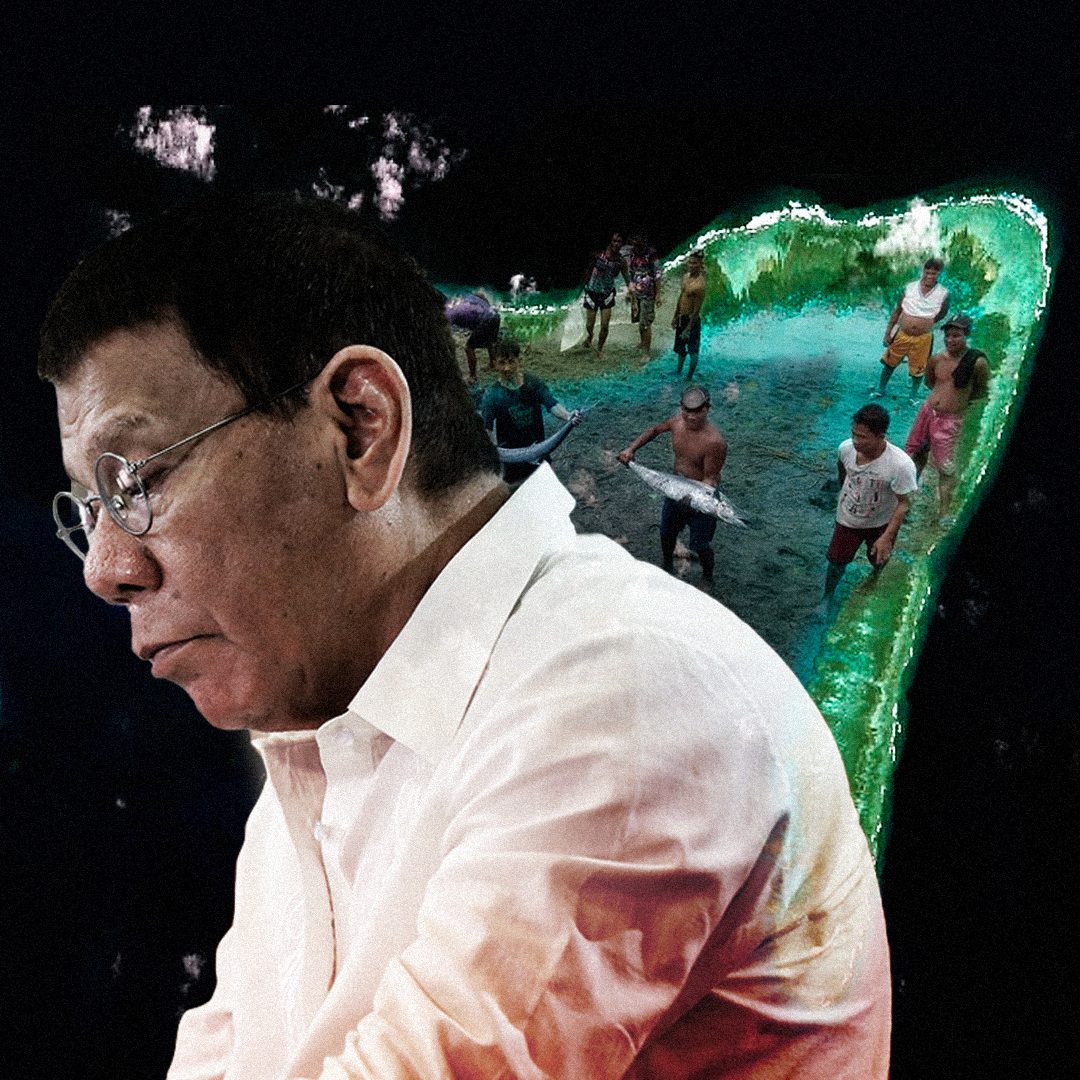
On the world’s most important diplomatic stage, a more defiant President Rodrigo Duterte once told world leaders that the Philippines would reject all attempts to undermine the 2016 Hague ruling that affirmed the country’s rights in the West Philippine Sea.
Duterte’s words before the United Nations 75th General Assembly in September 2020 comprised just four lines in his most high-profile international speech to date, but it was enough to earn him rare praise from some of his toughest critics on the Philippines’ dispute with China.
In affirming the 2016 Hague ruling, Duterte said the award embodied the “majesty of the law,” as it stood for “triumph of reason over rashness, of law over disorder, of amity over ambition.” They were a marked turnaround from his and his administration’s previous statements – that it would “set aside” the award to avoid imposing on Beijing.
While observers welcomed what they heard the President say, they were not ready to get thrilled – those words should be substantiated by a consistent follow-through on the President’s part, they said.
And they were correct.
Nearly a year after his strongest statement on the issue, Duterte has once again gone the opposite way. Using a recent televised address to disparage his critics, Duterte on May 6 belittled the Hague ruling, saying it should end up in the trash bin.
A week later, he again used a weekly pandemic address to balk at any Filipino who believed his 2016 campaign promise to ride a jet ski to the West Philippine Sea, calling it a “pure campaign joke” people would be “stupid” to believe. The “joke,” which had been given as an answer to a Filipino fisherman’s question during a presidential debate, had been taken by the public to display the presidential candidate’s intent to protect the country’s interests.
“Ba’t sinabi niyang joke-joke lang? Joke-joke lang din naging presidente natin (Why did he say it’s only a joke? Our President became a joke too),” the fisherman, Carlo Montehermozo, told DZMM Teleradyo.
Throughout Duterte’s presidency, Filipinos have often had to bear the burden of his flip-flops on the West Philippine Sea.
After nearly 5 years of hollow statements to protect, visit islands, or assert the country’s rights to its own waters, Duterte’s words have all but walked back the historic moment when the Philippines asserted its legal victory to the world. This has kept Filipinos under threat not only from China’s actions in the waterway, but also his own whims on the West Philippine Sea.
Consistency is key
Before Duterte’s near-weekly efforts to speak on the West Philippine Sea issue, the country’s recent push to call out China’s aggressive behavior in the seascape had been met with the President’s silence. In late March, the National Task Force for the West Philippine Sea (NTF-WPS) flagged the presence of over 200 ships in Julian Felipe Reef, a boomerang-shaped shallow coral reef located within the Philippines’ exclusive economic zone (EEZ). The statement from the usually silent body would serve as the start of the Philippine government’s string of stern remarks on China’s behavior and forceful demands for its ships to leave the West Philippine Sea.
At the onset, regional and foreign policy observers took note of the Philippines’ actions on the issue, from lodging sustained diplomatic protests against Beijing to calling out its aggressive actions and conducting sovereignty patrols in the area.
The Department of Foreign Affairs (DFA) and the Department of National Defense (DND) have been in step with one another, with Foreign Secretary Teodoro Locsin Jr. and Defense Secretary Delfin Lorenzana calling on China to respect the Philippines’ rights. Both Locsin and Lorenzana have also held consecutive phone calls with their counterparts in the United States, the country’s only defense treaty ally.
Under Locsin, the DFA has even gone as far as to summon Chinese Ambassador Huang Xilian over the lingering presence of Chinese maritime militia vessels near reefs across the West Philippine Sea.
Maritime law expert Jay Batongbacal took note of such moves from the Philippine government, calling them “long overdue.” But Batongbacal said that, while it was in the country’s best interest that such actions were undertaken, it was also essential these were sustained.
“The key…is to ensure that they are sustained, and to try to recover ground lost in the last five years of inaction. Much damage has been done to the country’s foreign policy posture and legal position on account of careless and reckless statements made over the years, which China will certainly use to blunt any diplomatic initiatives,” Batongbacal told Rappler in a recent interview.
With Locsin and Lorenzana’s vocal stand on the issue, many couldn’t help but notice Duterte’s initial silence. Retired Supreme Court Justice Antonio Carpio viewed the President’s silence as concerning, saying it could send the wrong message to Beijing. It was imperative Duterte spoke out, he said, to let China know the Philippines’ position was consistent all the way to the top.
Former foreign secretary Albert del Rosario echoed this, stressing that the Constitution bound presidents to defend the country’s interests. Like other chief executives, Duterte must lead in the country’s efforts to defend its rights as “this is what presidents must be relied upon to do,” Del Rosario said.
Except where consistency is necessary, Duterte has delivered repeated uncertainty.
In the Duterte government’s recent move to become more vocal against China, Batongbacal noted: “We cannot discount the possibility that these are only for show, since the administration has demonstrated an ability to flip-flop on various issues.”
“That is why public opinion and pressure should continuously demand action from the government,” he added.

Many false choices
At times when Duterte spoke candidly about the West Philippine Sea, he often left Filipinos with false choices.
When speaking about the Hague ruling, Duterte said he took up suggestions to assert the award but that “nothing” happened. Malacañang also often claimed that the ruling was limited, as there was no international police to enforce it. In trying to explain the President’s remarks liking the Hague ruling to a piece of paper meant for the trash bin, Presidential Spokesperson Harry Roque said Duterte had belabored the point because there was no mechanism to enforce it.
Judge Stanislaw Pawlak of the International Tribunal for the Law of the Sea had pointed out in an earlier Rappler Talk that efforts to assert the 2016 Hague ruling and its merits would aid not just the Philippines but China in the long-run. Pawlak was one of the five judges involved in the Philippines’ case against China at the Permanent Court of Arbitration in the Hague.
“General international law, as you mentioned rightly, has no police, has no prison. But it’s a kind of long-term interest. I think it’s better to have, for one country with another country, friends than enemies, because this is reciprocity: If you’ll be unfriendly to me, I’ll be unfriendly to you. And in the long run, I think economic interests, security interests, will prevail,” Pawlak told Rappler during a visit to Manila in 2018.
Duterte also often repeats that there was “nothing” he could do about Beijing’s aggression in the West Philippine Sea, as taking action and asserting the country’s rights could court “war” with China.
Yet, in the past few months, some of Duterte’s actions put in limbo the country’s Visiting Forces Agreement with the United States – a military deal, which experts said would serve as a deterrent to China in the West Philippine Sea. Negotiations between the two sides were ongoing to benefit both parties, the countries’ diplomats said.
In the meantime, maritime experts, members of the academe, and foreign policy experts have debunked the President’s war arguments on several occasions.
Pawlak, in speaking of the value of the award, also said that while China’s military and economic might is a “fact of life,” it does not mean the Philippines is any less than its neighbor.
“This is a fact of life, you cannot change this, but if you are tall and I am short, it does not mean we are not equal. It is the same with countries. This is not a question of how big you are, how strong you are – it is a question of you have the same rights as I have,” Pawlak said.
Holding Philippines back
For University of the Philippines political scientist Herman Kraft, Duterte’s constant flip-flopping on the West Philippine Sea was holding the country back.
The recent issue over Chinese vessels swarming reefs, including Julian Felipe, had been the most prominent issue on the West Philippine Sea so far and had been likened to both both the 2012 Scarborough standoff and China’s seizure of Mischief Reef in 1995.
However, unlike in the Scarborough incident, Duterte was a variable in the Julian Felipe Reef episode that “could hold the Philippines back,” Kraft said.
“In this case, the variable that could hold the Philippines back in standing up to the Chinese is our own president, who seems to feel that it is okay for him to try to de-escalate the situation on Julian Felipe Reef even at the cost of compromising our position on the issue because he has a debt of gratitude he owes China,” Kraft told Rappler.
In the earlier years of Duterte’s presidency, some parties argued that his move to develop warmer ties with China could be strategic, coming after the Aquino administration under which relations with Beijing hit an all-time low. But more than halfway into the Duterte administration, any such strategy, if it all, was unclear.
“At the start it was a matter of trying to rebuild relations with China, which arguably needed to be done. Now, it seems like the Duterte administration is placed in a situation where it is indecisive about how to respond to blatant cases of Chinese overreach that are publicly exposed,” Kraft said.
The case was similar for arguments that Duterte’s pivot to China could be done as part of efforts to balance world powers, Batongbacal said.
“I have not seen any actual deliberate balancing between the major powers. There has not been, there still isn’t, any grand geopolitical strategy to pit other countries off against each other to extract significant favorable concessions for the country,” he said.
Still, other foreign affairs experts say that other than Duterte’s statements, it was also crucial to watch what both the DFA and DND continue to do as these constitute the country’s actions on its national interests, including the West Philippine Sea.
“Listen to what Duterte says, applaud when you need to applaud, criticize when you need to criticize, but the real deal is what is happening [on the ground] and under the table,” former Philippine ambassador to Washington DC Raul Rabe said.
For one, in the days after Duterte contradicted his statement on the Hague ruling made in the UN, the DFA released a statement that the President’s remarks at the multilateral forum were what remained the “supreme expression” of the Philippines’ foreign policy on the West Philippine Sea.
And after Roque claimed Julian Felipe was “outside” the Philippines’ EEZ but claimed by the Philippines through a Marcos-era presidential decree, the DFA said the Philippines’ position on Julian Felipe Reef and the illegal presence of Chinese ships in the area remained unchanged.
China’s gains
Where Duterte flip-flops, China benefits. Mixed messaging on such issues like rights in the West Philippine Sea could be detrimental for a country, said Malcolm Cook, a Southeast Asia analyst with the ISEAS-Yusof Ishak Institute in Singapore.
“Mixed messages on core sovereign rights issues are not strategic, they are counterproductive…. President Duterte’s accommodative approach to China, including in the West Philippine Sea, has remained the same since he took office. What is clearer are the costs of this approach to the Philippines and the benefits of this approach to China,” Cook said.
Asked why Duterte continued to make such statements when both his defense and foreign affairs secretaries called out China, Carpio said the President believed China was on his side.
“I think he honestly believes ‘China is in possession.’ That’s the only thing I can conclude because he has been saying that repeatedly,” Carpio told ANC, adding, “The President has always said that if there is a mutiny or coup de tat against me, President Xi Jinping will protect me. So I think that is what is behind his mind.”
Batongbacal, meanwhile, said that whatever may be the true intention of Duterte’s words, Duterte’s actions have shown his efforts to woo a political patron in China.
“What I’ve seen is a mayor trying hard to woo a political patron by demonstrating loyalty and obeisance in the hope that he will be showered with very generous favors he can show off to the Filipino people. And he still didn’t get even just that,” he said.
While the Duterte administrations inconsistent messaging on the West Philippine Sea keeps Filipinos disposed to the President’s changing statements, Kraft said the uncertainty may not bode well especially as the 2022 national elections nears.
“The WPS is an area of uncertainty, definitely a vulnerability, to whomever President Duterte supports as his successor. The 2019 election showed that the WPS issue is not something that Filipinos may hang their choices on during a mid-term election. (But) In the aftermath of the pandemic, and the economic devastation it has wrought, perceptions of blatantly giving in to China could be damaging for a Duterte-supported candidate for the presidency,” Kraft said.
In recent days, Duterte has taken to claiming in his speeches that while the Philippines was grateful to China for offering assistance, including COVID-19 vaccines during the pandemic, he could not compromise on the West Philippine Sea.
After years of “jokes,” hyperboles, and backtracking statements, however, will Filipinos still believe him? – Rappler.com
Add a comment
How does this make you feel?
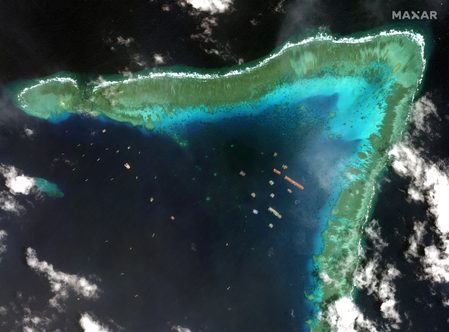
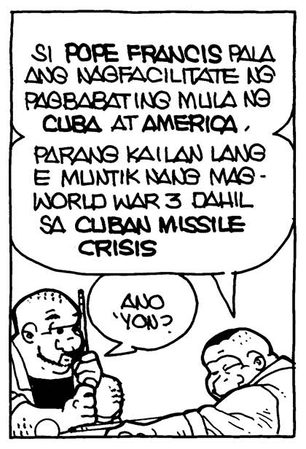
![[PODCAST] Ang panibagong panggugulo ng China sa West Philippine Sea](https://www.rappler.com/tachyon/2021/04/newsbreak-beyond-the-stories-landscape-with-topic.jpg?fit=449%2C449)
![[Newspoint] The lucky one](https://www.rappler.com/tachyon/2024/04/lucky-one-april-18-2024.jpg?resize=257%2C257&crop=536px%2C0px%2C1080px%2C1080px)
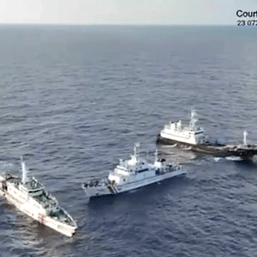
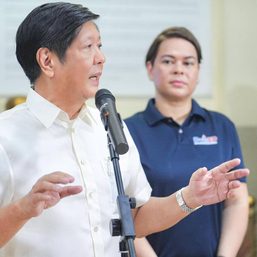
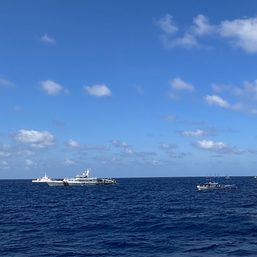
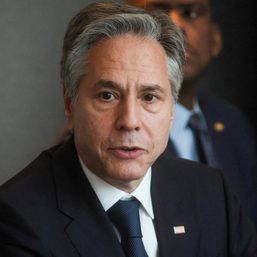
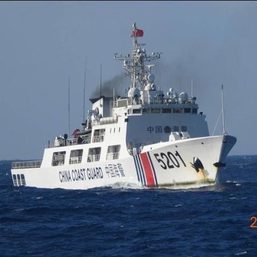
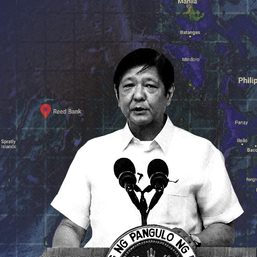
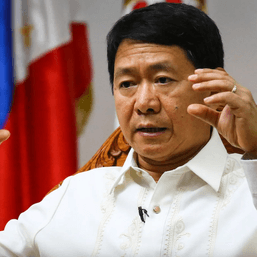
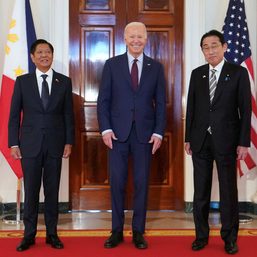
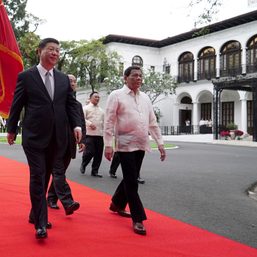
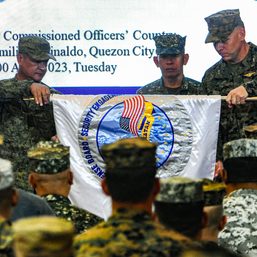

![[The Slingshot] Alden Delvo’s birthday](https://www.rappler.com/tachyon/2024/04/tl-alden-delvo-birthday.jpg?resize=257%2C257&crop=263px%2C0px%2C720px%2C720px)
![[EDITORIAL] Ang low-intensity warfare ni Marcos kung saan attack dog na ang First Lady](https://www.rappler.com/tachyon/2024/04/animated-liza-marcos-sara-duterte-feud-carousel.jpg?resize=257%2C257&crop=294px%2C0px%2C720px%2C720px)
![[Newsstand] Duterte vs Marcos: A rift impossible to bridge, a wound impossible to heal](https://www.rappler.com/tachyon/2024/04/duterte-marcos-rift-apr-20-2024.jpg?resize=257%2C257&crop=278px%2C0px%2C720px%2C720px)

There are no comments yet. Add your comment to start the conversation.